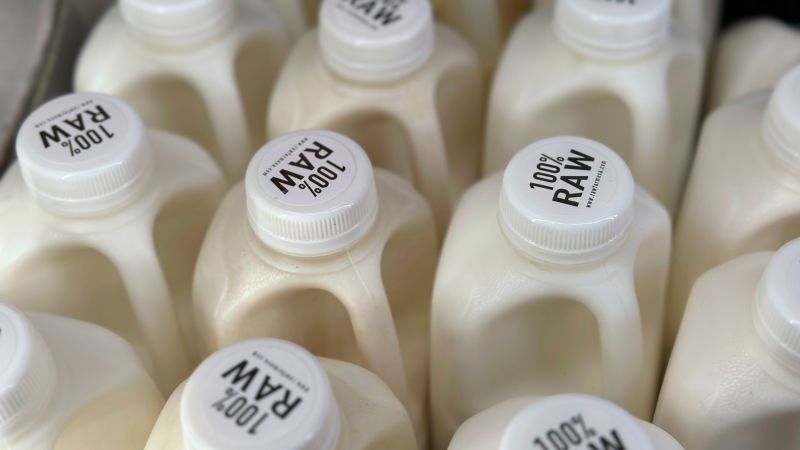Americans’ steadfast dedication to their beliefs can be a good thing, but it can also go too far, Dr. Jessica Steier says – like when adults yell at Girl Scouts that the cookies they’re selling are “poison.”
Steier, a science misinformation expert, says a mom recently told her that her daughter was berated by natural-foods fanatics while selling Toffee-tastics and Thin Mints outside a local grocery store.
“Just because things are ‘natural’ doesn’t make them safe or even good for you,” Steier said – something she often reminds her audience on her podcast, “Unbiased Science.”
These types of incidents are signs of growing shifts in the way people in the US think of their health, and it has little to do with what their doctors tell them.
Extreme “natural” diet trends like drinking raw milk or raw meat smoothies or eating a stick of butter every day seem to be moving from the fringe talk of the Tradwives trend and the manosphere, more toward the mainstream.
Dr. Kyla Lara-Breitinger, a cardiologist at the Mayo Clinic who specializes in cardiovascular disease prevention, said she thought she’d heard of most fad diets. But then the CEO of a major company told her he’s on the “lion diet,” which focuses on salt, water and meat from ruminants such as cows and deer – no fruits or vegetables allowed.
“It’s just kind of bizarre what’s happening,” Lara-Breitinger said. “I get a lot of the ‘worried well’ who take a ton of supplements, who follow certain influencers who tell them they have to eat everything raw – raw meat, raw eggs – because they believe it’s healthier, less processed and more natural.”
Lara-Breitinger said her patients who are adhering to ketogenic, carnivore or paleo diets, in which they eat no grains, tell her their inflammatory markers have improved.
“That’s great, but then I ask, ‘what’s your LDL cholesterol? How is that affecting your coronary arteries?’ ” Lara-Breitinger said. “That’s much more likely to kill you prematurely.”
Studies show that Americans have long preferred products with a “natural” claim. Surveys consistently show that shoppers are willing to pay significantly more for products with a natural label.
Continue Reading on CNN
This preview shows approximately 15% of the article. Read the full story on the publisher's website to support quality journalism.
